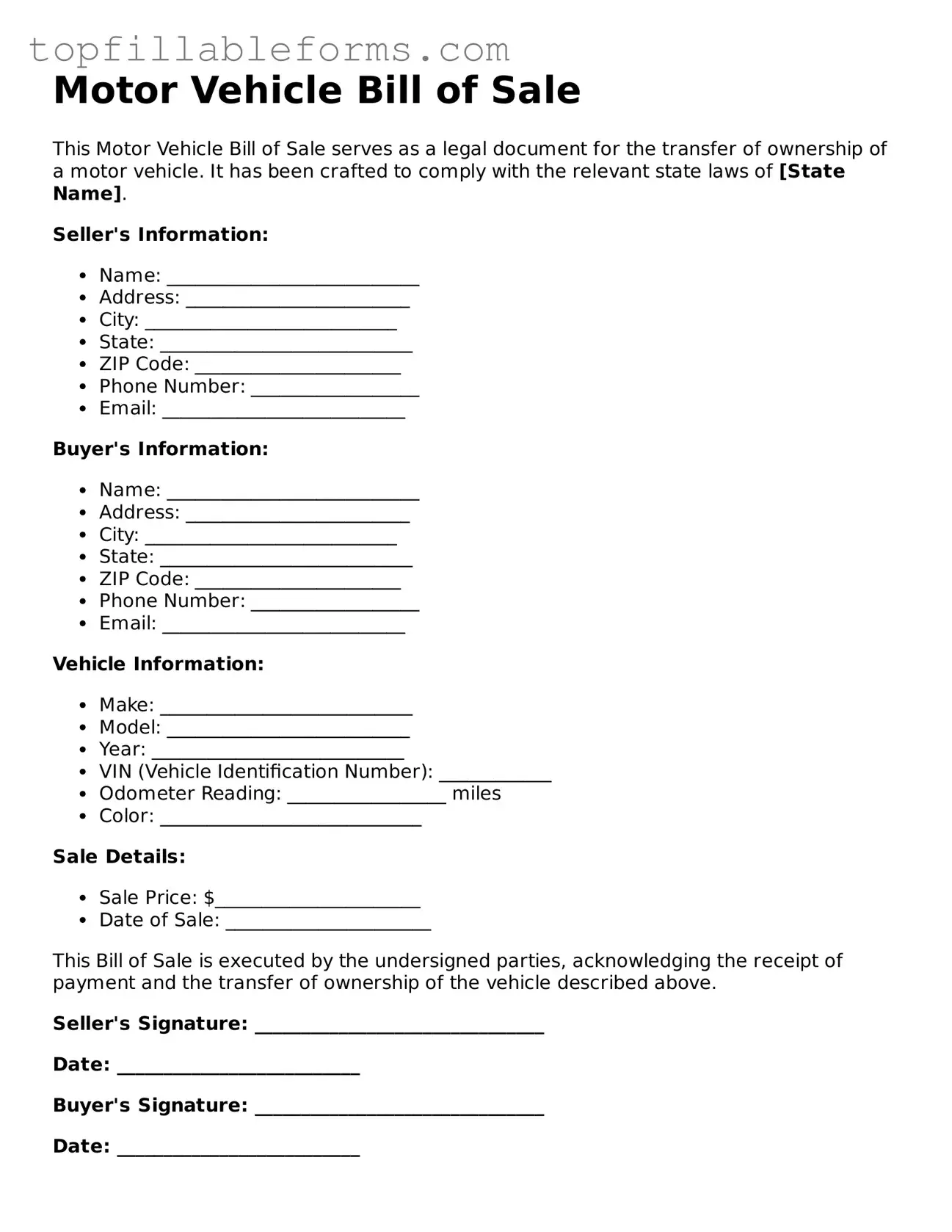Free Motor Vehicle Bill of Sale Form
The Motor Vehicle Bill of Sale form is a legal document that serves as proof of the sale and transfer of ownership of a motor vehicle from one party to another. This form typically includes essential details such as the vehicle's make, model, year, and the buyer and seller's information. Properly completing this form ensures a smooth transaction and protects the rights of both parties involved.
Open Motor Vehicle Bill of Sale Editor Here

Free Motor Vehicle Bill of Sale Form
Open Motor Vehicle Bill of Sale Editor Here
Finish the form now and be done
Finish your Motor Vehicle Bill of Sale online by editing, saving, and downloading fast.
Open Motor Vehicle Bill of Sale Editor Here
or
▼ PDF File
